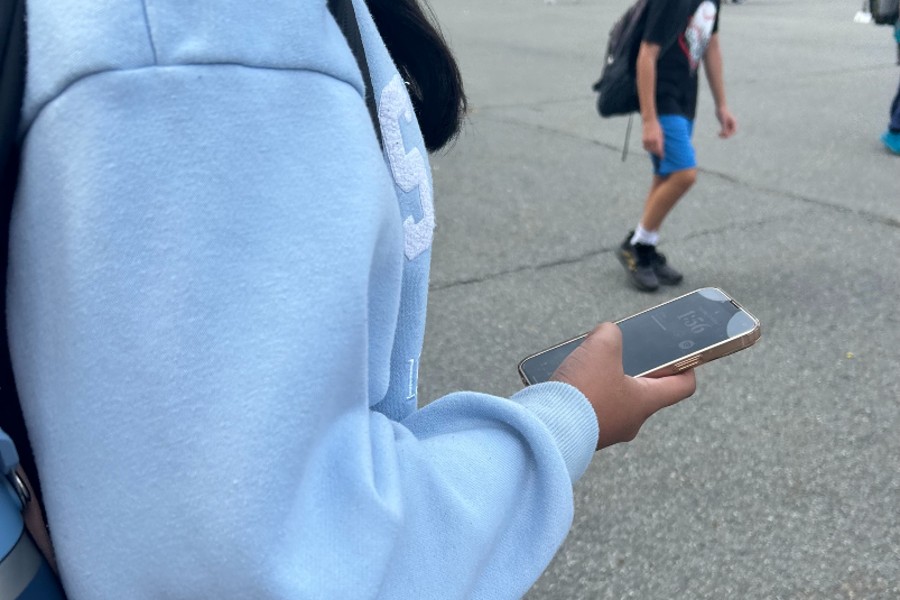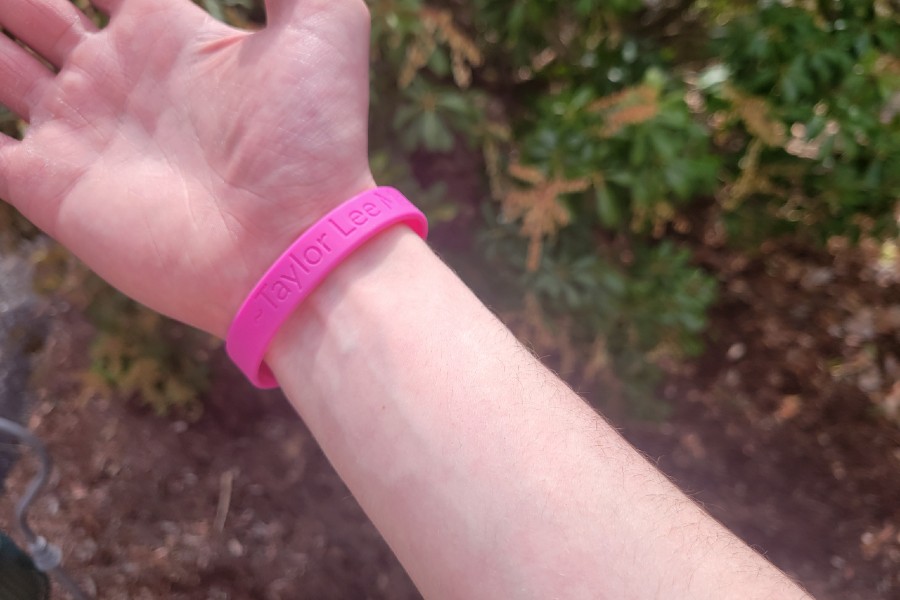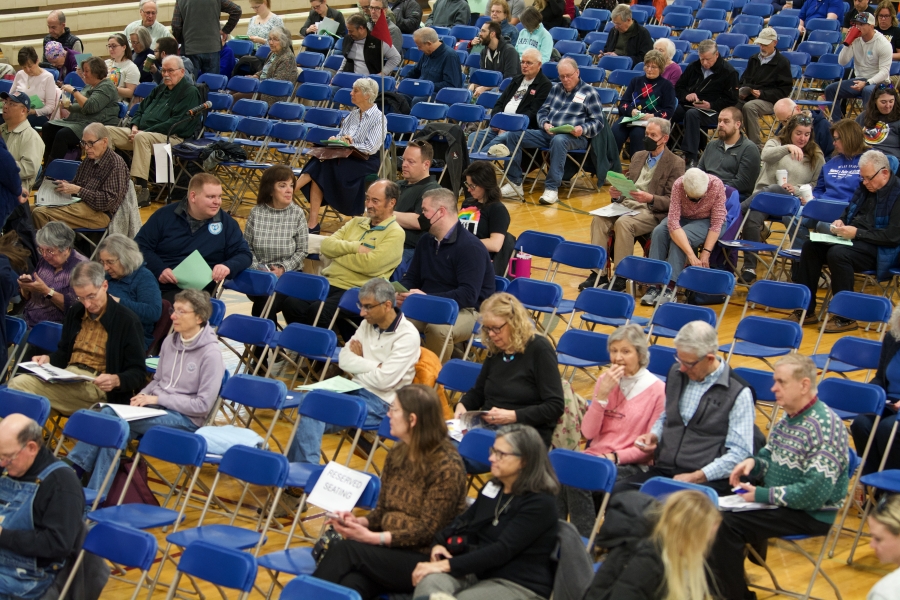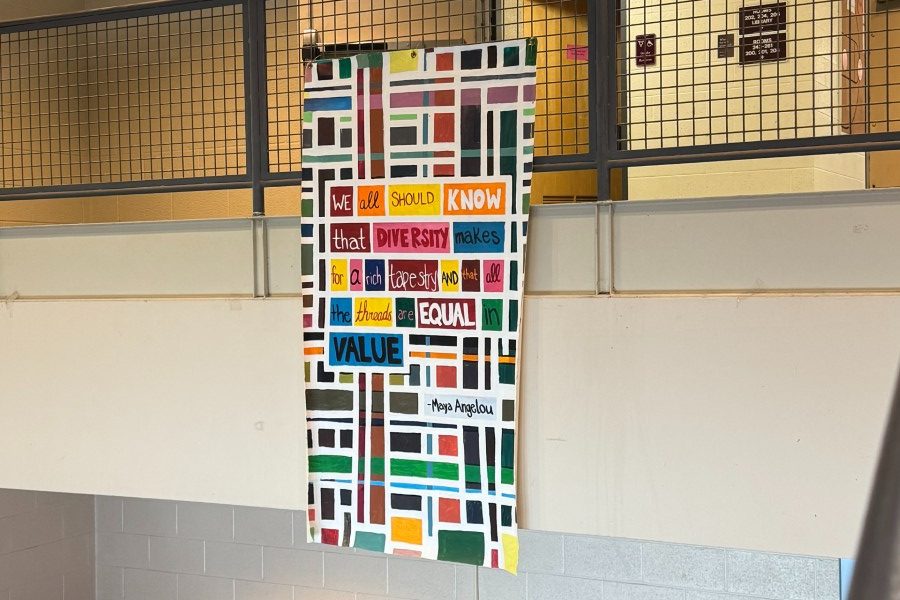Under a pilot phone policy, Blanchard and Stony Brook Middle School students will be required to lock their phones and other personal electronic devices in Yondr pouches for the duration of the school day starting in early November. This policy is meant to reduce the number of distractions in the classroom, alleviating the increasing pressure on teachers to curb cell phone usage among students.
According to Stony Brook Principal Allison Hammer, every student will be assigned a Yondr pouch, which they are responsible for bringing to and from school every school day. During advisory, students will lock their phones in their pouches with the assistance of teachers. They will keep them locked until the end of the school day, when they will unlock them using the wall-mounted magnetic devices at the exits of the school.
“For me, this is now a technology that allows us to take the cell phones out of the equation,” Superintendent Dr. Christopher Chew said. “So instead of a teacher or administrators needing to worry about somebody doing something they’re not supposed to be doing, and students worrying about [whether they have alerts going off], people can focus on the reason why they’re supposed to be at school.”
The middle schools are currently paying for about 1,450 pouches, including loaner pouches, which will be funded using WPS School Choice funds, with no impact on WPS’s operational budget.
Students who do not have phones will still be assigned a pouch, and will be expected to use it if they ever do receive a phone. The pouches are durable for three to five years, and if a student damages their pouch, they will have to pay for a new one with each pouch costing $30.
The shift to Yondr pouches comes amidst a recent push by the Massachusetts Department of Elementary and Secondary Education (DESE) for cell phone free classrooms, offering grants to schools interested in piloting different programs. At the time of the grants, WPS did not pilot any programs because cell phones were not an issue the district was focusing on. However, more problems arising with cell phone use and knowledge of the pouches in other schools led to the decision to purchase the pouches.
According to Chew, the policy aligns with the school committee’s Strategic District Improvement Plan, which focuses on the social and emotional well-being of students and staff, among other objectives.
“We’re going to remove these distractions and remove the ability of social media companies to be pulling and tugging at students during the school day, [leading] students to treat each other poorly,” Chew said.
According to Stony Brook eighth grade math teacher Tricia Craig, as much as phones have the potential to be used as learning tools, they have also caused great disruptions in class.
“We try to embrace [cell phones] and have students use [them] appropriately, but it’s really hard to police that when there’s 25 kids in a class and you just can’t see everything,” Craig said. “ I absolutely see an increase in the last couple of years of how many kids have phones at such a young age and that they can’t control checking them. Psychologically, you hear the ping, and you need to know what’s there.”
Going into the new phone policy, some students are skeptical as to the effectiveness of the pouches.
“I think that Yondr pouches are a good idea, but I don’t think they’re going to be that effective for a lot of people because people are going to try to use magnets and use it in the bathroom and hide it from teachers,” Stony Brook eighth grader Hailey Andresen said. “I know a couple of people who sneak into class and use it anyway, so it’s just going to be on their mind the entire day, which isn’t going to help with school anyway.”
According to Chew, teachers will be receiving training in order to ensure the Yondr pouches work as smoothly as possible. Depending on how the new policy goes, administration will consider whether to continue using the pouches for upcoming years, as well as potentially expanding it to the high school.
Hammer and Blanchard Principal Timothy Hislop remain optimistic about the Yondr pouches, assuring families that students will still be able to call home from the main office and use their phones after school ends to schedule rides.
“As a parent, I recognize that my own children need to have their phones with them for sports and other after school activities, and with Yondr students can still have their device on them for the day,” Hislop said. “The feedback from communities that have used Yondr has been positive and the more I learn about it, the more confident I am that this will easily become part of our daily routine.”








